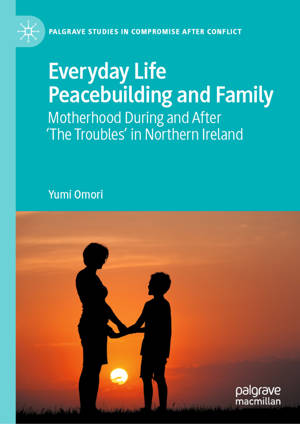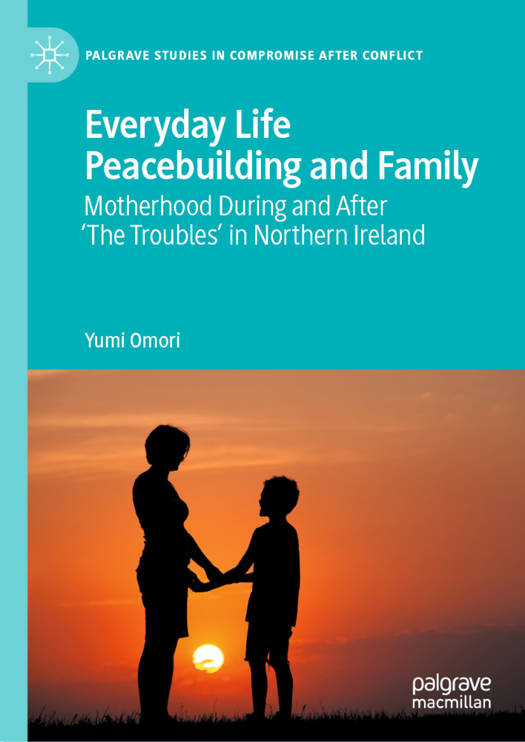
- Retrait gratuit dans votre magasin Club
- 7.000.000 titres dans notre catalogue
- Payer en toute sécurité
- Toujours un magasin près de chez vous
- Retrait gratuit dans votre magasin Club
- 7.000.0000 titres dans notre catalogue
- Payer en toute sécurité
- Toujours un magasin près de chez vous
Everyday Life Peacebuilding and Family
Motherhood During and After 'The Troubles' in Northern Ireland
Yumi OmoriDescription
This book offers a novel approach to studying war and peace by foregrounding motherhood in times of conflict and peace processes from a sociological perspective. Through qualitative research resting on individual and focus group interviews with 55 mothers who had lived through the Northern Ireland conflict, this book examines the gendered nature of coping with conflict and its aftermath in peace processes. Drawing on the idea of everyday life peacebuilding, it discusses how the family is located in the processes of social transformation in conflict-affected societies, and illuminates that mothers play central yet largely unnoticed roles in maintaining and restoring sociability in a conflict-affected society. The book illustrates that mothers have been hidden and underappreciated 'everyday peacebuilders', as well as hidden and trivialised victims of the conflict.
Spécifications
Parties prenantes
- Auteur(s) :
- Editeur:
Contenu
- Nombre de pages :
- 231
- Langue:
- Anglais
- Collection :
Caractéristiques
- EAN:
- 9783031744099
- Date de parution :
- 02-12-24
- Format:
- Livre relié
- Format numérique:
- Genaaid
- Dimensions :
- 148 mm x 210 mm
- Poids :
- 420 g

Les avis
Nous publions uniquement les avis qui respectent les conditions requises. Consultez nos conditions pour les avis.






